|
I've seen this guy before. Perhaps you have too.
He once sold Real Change at 4th and Pike. His strategy was sui generis, and had nothing to do with saying anything about his product. Instead: wear a huge, genuine, beaming grin, and yell out "good morning," we're talking really bellow it out– "Good Morning! Good Morning!"– bellow it out like a national treasure waiting to be found, roaring out kindness to every single passersby. There was no sense of falsehood in his being, just massive uncontrollable joy howling through him, radiating out like fervent, vehement, impassioned sunshine. He fulfilled the great Thomas Hardy quote: "the corners of his mouth spread till they were within an unimportant distance from his ears..." How he didn't lose his voice every morning I have no idea. People would be delighted. How could they not buy his paper? Such enthusiasm, so extreme and unfettered. It's not like they're going to find that at the office. Mid-forties, African-American, jean jacket and cap, with that smile… oh! The first time I saw him I don't even recall him having any newspapers. I just remember him shooting delightfulness at everybody. Here he is tonight getting on at Martin Luther King Way, by Franklin High. "Hope you had a good holiday!" I say. "It was wonderful! And yours?" "It was outstanding, thanks for asking!" "I hope your New Year is even better." "Right back atcha!" He sits down two seats back, but I can't let him go. I've never actually talked with him before. "You still sellin' the paper?" "No," he replies, grinning. "Don't wanna do it forever, I guess." I'm working off the assumption that it's difficult work with many drawbacks. "Well, actually, I'd love to do it for about one more year…." What a guy! "Yeah? I bet you meet a lot of interesting people, good people," "Oh yeah! Great folks." "I remember you, 'cause you would always say, good morning, good morning!" "Yeah!" "That's a hard, I mean that's a tough job, sellin' the paper! I got some friends who do it." "Well, it's not so hard." This guy! "I try not to look at it as a job," he continues. Do you see what I mean? I'm in awe! Of course it's a hard job, my goodness, they only get $1.25 per paper sold! The person in the chat seat moves away, and he takes over, continuing: "I just greet everyone, say hello to everyone," That sounds familiar. "Get 'em started in a positive way," "Exactly," "Give 'em some good vibes in the morning." "That's what I try to do, yeah. That's why I'm out there." "You know what? That's how I feel about this." I'm pointing at the steering wheel. "That's why I'm here. I also, I try not to think of this as a job either, because… uh, well, there's too much other stuff about it that's great!" "And you know what? I never ever sat back back and said, 'hey, do you wanna buy some Real Change.' " I think I'm falling in love. No, I don't mean if this guy was twenty years younger and a woman! You understand. It's the idea expressed, that raising the quality of life for these strangers, that that was more important for him than actually you know, making his own living.... Looking at his stentorian exuberance I'm reminded of the Nelson Henderson quote engraved on the steps of the University Heights Community Center: "The true meaning of life is to plant trees, under whose shade you do not expect to sit." Oh, how I love the generosity in that perspective, the built-in assumption that other people are like us and worth the effort! That he saw the urgent need for raising the people up and did something about it in a simple, nonjudgmental way and, and this is the real kicker here, that alongside such an attitude things fell together for him without too much effort on his part. Who was it who said the universe seems to favor those who put their trust in it? We reach for hints of understanding, glimpses of wisdom as we work out how to be our best selves. "That's awesome," I say. "That's what I'm talkin' about!" "Well, I'ma get off here and give McDonalds some more of my money!" "There you go! Good to see ya!" "You too, Happy New Year!" "Happy New Year!"
2 Comments
I pull up at southbound Union behind a 36, and a fellow with a walker, just now hustling for that bus, opts for me instead. Frequent transit users know to look for a second bus; it always has more seats. He's wearing a large beige outdoor jacket with the hood up, and with his head down I can't see his face. He maintains this position as I put out the ramp and lift up a seat or two for him. Then I hear him speak.
"I'll be goin down to the courthou–" Never mind the courthouse. I haven't seen this guy since 2012. "Greg!" I howl the name as if it's a long-lost cipher, the magic code that'll unlock our strangerhood and turn us to friends. "Is that you?!" He looks up from under the hood, pulling back the rim. "My man!" A rich grin from ear to ear as he proffers his hand, turning the rainy night to sunshine. It's not so cold out here after all. His grip is bonier than I recall, but firm as ever. Greg is described here and here. He made me feel at home during my early days on the 3/4, a time when he was the picture of health and a neighborhood regular. After some years he became homeless, and I'd take him to the City Hall shelter in time for its evening opening. After a long absence, he showed up one day at a different time, proudly telling me of his new apartment, the waterfront skyline view of which he was most enthused. "I knew I recognized that voice! Where you been all my life?!" I say, with that lighthearted mixture of joy and mock reproach. "I got me a spot! You know where St. James is?" "Course I know St. James! Now let's see the last time we spoke, you was tellin' me about you found an apartment that had a view of the water." "Same one!" "Oh, excellent!" "It's a kinda assisted living spot, they take care of some of us old folks." "Well, look at you go! That's excellent!" "You seen my buggy?" Referring to his walker. "Yeah, I see you got a lil' sports car there!" "Was I limping last time you saw me?" "Uh. Limping?" "Yeah." "Honestly I don't remember, I think I was just excited to see ya!" A friend I admire once shared he prefers to say just what he's thinking, regardless of what it sounds like. I'm excited to see you. I was just thinking about you. He'll entrust such lines to the listener, trusting you'll understand there's no subtext intended. Something about this emphasis on face value gladdens me, and I endeavor to do the same. "Ha. Well, from June '13 to, from June '13 to August '14 I was limping. Finally, went to see the doctor; he says it's cancer." "Greg!" I howl the magic code again. "I'm glad you're here! That's heavy stuff!" "Here, look." He shows me his scalp, under his knit cap. It's bare, save for a resealed wound of sorts. "Greg, you're a survivor." "I've done it two times already." "Ugh, Greg, you're a trooper. Is what you are. I'm glad you're here!" "Thanks. This'll be me." We've arrived at the courthouse. "Sure thing." "I'm gonna look around a bit for her–" not sure of his meaning there– "–'cause it's my birthday next week." "Hey, happy upcoming. Greg, it's good to see you again," "This your route?" "Every night!" "Well, come on up there sometime, ask for Greg. I'm always up there." "Well, thanks for steppin' out to say hey! I been wondering where you been hiding!" His hood is going up again, concealing his face, but I can still see the grin. It's a comfort to know he's still among us, that friendly soul who made me feel welcome when I was new. I remember him as the sturdy, strapping figure he and I both once knew as real. Greg. Let us recall our memories of others at their best moments, not otherwise. I picture him on the hill up there, maybe he's home right this very minute, smiling to the sky and to himself, a private smile seen only by the clouds and sea. Is there a greater pleasure than sitting in a place of comfort, taking in the view from the picture window? Happy holidays. Short one today:
I'm walking south on Second between Blanchard and Lenora, west sidewalk, just leaving a friend's house. Here are two figures on the sidewalk: the first, a woman of indeterminate middle age, in a scraggly ponytail, sweatshirt and tights, walking briskly. Approaching her is a male of comparable age, slouched over, intoxicated, dressed in sagging dark layers, getting closer to her, noticing her…. As they near each other the woman, without breaking stride, sharply barks out: "HEY! PULL YOUR PANTS UP!" The man thinks on it for a second before sheepishly replying, "okay." He hoists them up as ordered. He waved again, from the sidewalk now, as I drove up to the red light he was now walking toward. Sometimes it's awkward to cross paths again with someone you've moments ago bade farewell. But he was just happy at the additional opportunity to express gratitude. I enthusiastically threw a wave in return. Rainier can be a happy place.
-- Just before that, I'd heard him first speak as a disembodied voice behind me: "whatchu just said was better than any computer I ever heard." "Well, thanks man! Tha's nice of you to say!" He'd seen the whole thing, and he was speaking now about the tone of the bus in here, my tone. I tried to play it off, let the compliment fall somewhere else. "Feels better to do it myself. Listenin' to that computer lady for eight hours kinda drives a person up the wall!" "Ha! Well lemme tell you, it makes a difference!" "The personal touch?" "Yeah, man, you puttin' it out in tha air. You got a tough job but no matter wha's goin' down, that type a love, you make it all right." He was a heavier African-American man in his late forties, dressed in a jumpsuit jacket and jeans. As he stepped out, he said what a driver once told me, and what I benefit from being reminded of: "it don't matter if he push it away, if they don't give it back. 'Cause you're putting it out there." "We're doing our part!" "That's all that counts!" -- A moment prior: Don't dwell on the negative, I told myself. Don't worry about what might have happened, or what could happen when I drive back through there. Those aren't realities, and the reality, that everything worked out, is undeniable, and I'm going to hang onto that thread and make it stronger by focusing on the associated attitude. It may seem like it just barely turned out this way, but we could also choose to see it as always being meant to turn out this way. Hold on to yourself, said Nick Cave. I pulled the mic down and announced in a genial voice, like everything was just dandy, if not in the recent past then now: "Folks, this is a route 7 tonight, welcome aboard. We're takin' a number 7 here, goin' out to Prentice Street tonight, this bus goes all the way to Prentice." -- Immediately preceding that I was talking to the Russian guy up front. Just dive right back into the conversation from where we left off, I thought. Don't make a snarky comment, or complain about what just happened, or even sigh or comment woefully on the state of the world, of society… no, I told myself, my mind should be moving right along to the next thing. Don't even let it register on your radar. "So you were saying, four dollars a box, $4.25?" "Yeah, that was the best price. Often it was two per box." He was telling me about his days a commercial driver, transporting fruit. I asked him about details, moving both of us forward. He had or has a CDL, but a bad divorce left him penniless, and with the USSR dissolved he has no country to return to. He carried himself in a polite and respectable way, with a cordiality setting himself apart. Most homeless people I encounter are polite, but he had that specific air of self-respect I've found sometimes in European countries, where you put some stock into your presentation regardless, because that's all the information strangers have when they first see you. Soft-spoken, educated guy fallen on hard times, still with shinable shoes and collar folded back. He'd ridden maybe fifteen times before, but we only started going beyond pleasantries tonight. He said, "do you pay attention to the streetcar? In one direction, it has no connection on top." He's the first passenger who's pointed that out, and is absolutely correct. The First Hill streetcar runs on wire in one direction, and is battery operated on the other. I explain the mechanics, adding, "You've got a sharp eye! Di– are you an engineer, or electrical…." "Yes, I was an electrician in Moscow for many years." "I could tell, you're a smart guy." He swelled a little on the outside, and a lot internally. -- Five minutes before, the crowd was piling in at 5th and Jackson. This trip gets the NightWatch crowd, and they're efficient with their backpacks and sleeping bags and other gear. NightWatch is a shelter distribution center, but not a shelter in itself; you go there within a certain time window for a meal, and a ticket directing you to a shelter elsewhere in town. In order to do so, you have to have obtained an entry ticket from another facility earlier in the day. All this requires a certain amount of preparatory savvy, and the guys going there have to be on the ball in a way not all street denizens are. They're planning ahead, saving their strength or talking about the day labor spots opening in the morning. NightWatch is not unlike Real Change, which as a homeless resource draws a specific attitude type, because of the herculean amount of self-motivation and dedicated effort it requires to sell and subsist off of. But my bus is a welcome haven for anyone, not just the diligent. This man boarding now is of a different stripe. Dressed in untied basketball shoes and a ramshackle grey fleece, battered by rain and mildew, sagging in his jeans and vacant expression, he walks directly into two young Latino men in the bus doorway, shoving them aside with his torso as they were getting their fare ready. His unfocused eyes stare into the middle distance, dead, flat, robotic. Robots are scarier than angry men. Anger we can at least understand. "Gimme," he says deeply, in a clipped Somalian accent, to no one in particular. He slurs up the steps and pauses at the start of the aisle, blocking everyone. It's hard to tell how old he is. Twenty? Forty? Does it matter? The brain doesn't biochemically mature until a person's mid-twenties. Hard drug use before this age inhibits the development of the neurochemicals needed for the proper formation of multiple brain components, but most crucially for the prefrontal cortex. It's quite literally a case of arrested development. If an individual stops using by around age 24, there's still time for mirror neurons to develop. But kicking a habit is one of the hardest things to accomplish in life, and not everyone can do it that quickly. Addiction is a treatable condition; curtailed brain development isn't. The prefrontal cortex doesn't continue developing after the mid-twenties, and if its growth was prematurely stopped in the years prior, well. There is no undo button in life. The prefrontal cortex is the locus for what psychologists call "executive function": the ability to differentiate conflicting thoughts (good/bad, better/best), extrapolate future consequences of current activities, identify goals, predict outcomes, learn rules at a concrete level, and control behavior to anticipate and avoid socially unacceptable outcomes. The supramarginal gyrus (say that five times fast), also called Brodmann area 40, is strictly speaking located in the parietal lobe but is more generally situated at the junction between the parietal, temporal, and frontal lobes. Area 40 identifies actions and gestures of other people. I mentioned mirror neurons above. Mirror neurons fire when a person acts and also when a person sees an action being performed by another person. In other words, you feel better when the person in front of you smiles, or you care when someone else is sick even though you aren't. The right half of the supramarginal gyrus identifies our emotional state and that of others as distinguishable. It allows us to consider and imagine another's emotional state. Empathy, basically. It overcomes and autocorrects the brain's innate egocentricism (a Darwinian survival mechanism most pronounced in children or in adults without a developed supramarginal gyrus). Now, imagine not having any of that. This is why children are used as soldiers in certain parts of the world. It's a lot easier for them to kill people. It's also why robots are scarier, and why this man, with the faroff gaze and cloudy film in his eyes, is unsettling. "I saw the best minds of my generation destroyed by madness," Allen Ginsberg wrote in 1955, and could as well have been referring to all the possible future Raphaels and Marie Curies who, having finally kicked their habit, live out their lives with the emotional maturity of teenagers. Our man on the bus is nevertheless who he is, gyrus or no gyrus. He walked up those steps as if they were a ramp, and now he's walking into people as if they were thin air. In doing so he brusquely shoves a built, dark-skinned American man into a stanchion, not really noticing. The shovee takes a stance, staring and offended (I would later learn he was doubly stressed that night because his credit and phone accounts had just been compromised), but our man's brain is oblivious, distant, cold. I hope he's happy in there. He steps on an elder woman's shins, not noticing her pain or loss of balance as he looks blankly at the back of the bus. I ask him how he's doing. "Hegh," he says through missing teeth and rotting gums, leaning his face closer to mine. Other sounds fall away as I focus completely on him. His tongue is swollen, and thus the words come out poorly, but he's asking for a transfer. He asks for another right afterwards. "I got two for you tonight, my friend." "Kai ha' one more? Jus' one mo'." "Nope, we're gonna give you two. You've got the hookup now, I gave you two." He invites his friends outside into the bus, with, "Geh ovah here, fool! Hegh! Fuck." Even they look at him askance. They watch him as he looks not at them, but past them. I ask him whether he's staying or leaving, and after much indecision he floats down the stairs, out of the bus, toward his comrades. Folks inside breathe a sigh of relief. I close the doors and turn immediately to the Russian guy in the front seat. He'd been saying something about trucks and fruit box prices. "So you were saying, four dollars a box, $4.25?" --- Light reading on brain and drug science here and here. Or, if you like, heavy reading here, here, and here. "IT'S ONLY FRIDAY BUT I'M ALREADY EXCITED FOR FOOTBALL ON SUNDAY!"
That isn't me talking. As you may have guessed. It's Mr. Weyling, described in an earlier story. The important thing to reiterate is his deafening volume, all the more heightened in tonight's otherwise completely silent midnight bus ride, and also the hoarse and raspy nature of his benevolent roar. He says the line above a second time, at exactly the same level of intensity. This time he shrieks a post-addendum: "MINNESOTA, BABY!" Weyling finds a seat near the middle door, practically snarling with pugilistic glee: "IT'S GOING TO BE GOOD." I'm smiling at his complete lack of self-awareness, envying the uncomplicated pleasure radiating from his face. He grins up at the fluorescent bulbs, envisioning the coming slaughter. His slaughter visions would later prove to be accurate; in a couple days' time the score would be 38 to the Vikings' 7. "THEN NEXT WEEK IT'S SAN FRANCISCO," he positively bayed. "THEN AFTER THAT, PITTSBURGH." I love hearing ordinary sentences screamed at ear-splitting levels. It's actually kind of rare. "You know it," I said, referring to the schedule. "I KNOW THE WHOLE SCHEDULE." I need to point out that he doesn't speak quickly. Every word gets its proper due in the sun. Schedule is enunciated in its entirety, down to the 'y' sound between the 'd' and the 'u', as well as the 'ew' pronunciation of the 'u' itself, as in the French style. There may be three million people in the greater metro area, but only one of them talks like this. I'm enjoying it. "EVERY LITTLE DETAIL," he adds. If we ignore the volume and the rasp, the enunciation has a childlike aspect. "THE PLAYERS AND THE TEAMS. I KNOW THE WHOLE SCHEDULE!" "Yeah ya do!" Mr. Weyling explains: "I'M GONNA LISTEN TO EVERY GAME IN THE COMFORT OF MY HOME." "That sounds nice!" I half-yell in reply. "I'M GRATEFUL TO HAVE A HOME TO WAKE UP IN! AND A ROOF OVER MY–" "Lots to be thankful for." I'm trying to dial him down, speaking now in a quarter-yell, if you will. But my subtle efforts are of no use. He's on a roll now: "EVERY DAY I THINK GOD I HAVE A HOME TO SLEEP IN AND FOOD TO EAT." Proper grammar. Enunciated syllables. Cain-raising cacophony. A one-night-only performance. He really wants to get his point across. "I THANK GOD EVERY DAY I HAVE MY OWN BED. NOT LIKE THE MOORE. THEY HAVE BEDBUGS. I DON'T KNOW IF THEY STILL DO, AND I DON'T WANNA FIND OUT! EVERY MORNING BEFORE BREAKFAST I THANK THE LORD GOD." He stands up. "THIS IS HOW I THANK THE LORD," he explains, offering a visual demonstration, taking a stance in the aisle and prostrating himself, howling the appropriate phrases. If we were on a bus with a less-notorious reputation, all this might be too uncomfortable or bizarre for the other passengers, and the pressure to maintain some decorum might feel stronger. That isn't necessary here. We're on the 7. At night. Like the old 358, there's no meaningful expectation for normalcy. The passengers see that number proudly emblazoned on the front of the bus, and they know what they're signing up for. When riders get on and notice kids laughing each other silly in the back, they don't get worked up. They just roll their eyes. There's nothing to be done about it, and they know it. Drivers on mellower routes have the luxury of being able to get frustrated by things like passengers lying on seats, eating, or talking on their phones. That's not an option here, unless I want to grey my hair faster than the president. There are bigger fish to fry. "That's excellent, Mr. Weyling, you're a good guy. Thank you." "I'M GONNA PUT ON TWO SPRITZ OF COLOGNE," he announces. "Hey, that's a good idea." "WEYLING IS ONE HUNDRED PERCENT MAN AND HE LIKES ONE HUNDRED PERCENT WOMAN." Dramatic pause. "WEYLING DOESN'T LIKE NO MEN." Oh dear. Toeing the line, toeing the line, toeing the line…. "IF TWO GUYS WANNA HIT ON EACH OTHER, THAT'S ON THEM. I DON'T DO THAT. ADAM WAS THE ORIGINAL MAN, AND HE–" Aaand we're calling it. God-fearing gay-bashing is not allowed on the Nathan train. "Alright, Mr. Weyling! Inside voice, Mr. Weyling, inside voice, thank you!" He turns to Silent Weyling mode. The show is over. "Thank you," somebody says. He doesn't speak again until he steps out. "YEAH, GO AHEAD AND LAUGH," he says to someone snickering at his shoes, which are tattered and worn. "I GOT MINE. THESE SHOES BELONG TO ME!" At day's end he's a child like the rest of us, trying hard, trying ever so hard to protect himself from this confusing world and all the hurt it has to offer. Every emotion we see in others is a manifestation, a friend once told me, a seed of which we ourselves have also experienced. I've been excited, thankful, and made fun of, as he just was on this bus ride. Thirty minutes later, buried somewhere out in Rainier Valley, a resident came forward before deboarding. He'd been sitting right behind Weyling. "Is he a regular? Seemed like you kinda knew him," he said. "Yeah, he stops in every now and then. Some days he's better than others!" "You're a fuckin' saint." Not a patron saint, mind you, not a martyr nor confessor– just one of those lowly, humble "fuckin' saints," to use his coinage. I understand they're a bit lower on the hierarchy! It was first with confusion, and then with great disappointment that I was informed by a passenger as to why there were squads of riot police all around us on Capitol Hill. White supremacy? Here? Why am I being told of flyers describing in lurid detail what these guys hope to do to all gays, blacks and otherwise who cross their path?
There's a memo that hasn't gone out, I thought at the time. The memo is, we're in Seattle, in the 21st century, the fastest growing, most educated city in the United States. I misunderstood my passenger at first. Surely she meant a group protesting white supremacists, not skinheads themselves. There couldn't possibly be something that antiquated in a city as progressive, as forward-thinking, as European as ours. We're supposed to be bickering over lattes about rent control and transit infrastructure, not cowering from the hateful spectre of ignorance. Small wonder these guys don't live in the greater Metro area; you can't be that nescient growing up in a dense urban environment living amongst the multitudes. You don't have neo-nazi rallies in Times Square or Sunset Boulevard. It doesn't work like that. My mind wandered to the recent May Day protests, which took place on these same streets. At the time, the crowd surrounded our bus and we inside got an intimate eyeful of the rabid hordes swimming past. What I remember most vividly were the police. Behind their billy clubs and tear gas pellets I could see their faces. They were absolutely terrified. That's a hell of a job, I thought, back in the present, driving past a squadron of cops of all colors. If any one of these guys is killed tonight by skinheads, it will be the same magnitude of tragedy as the racially profiled killings we've sadly become accustomed to. The loss of any person, for the sake of ideology.... When the Dalai Lama visited Seattle in 2008, he said war, as a form of problem solving, was out of date. Hate is similarly antiquated as a way of conceptualizing others. It ignores the bare fact of our commonalities. At the end of the day, we all want about the same for ourselves and our loved ones. "So what was that protest all about?" asked a middle-aged street man with stringy hair. He and I were helping strap in a wheelchair-bound passenger on my last run; just us three strangers on the bus at this late hour. The chaos had died away. "It was some white-supremacy thing." "A what?" "Yeah, not that many guys though. There was more, a whole bunch more, way more anti-white-supremacy people. Which is good." "Depends who you talk to," he said. Oh dear, I thought. "I guess," I said. "Don't get me wrong, I'm no white supremacist. But I do have blonde hair," "That's fine!" "-and blue eyes," "Oh, that's fine!" "-and I was raised Irish and German," "That's perfectly, that's great!" "I can't help that." Which is the whole thing in a nutshell. Nor can anyone of any color. "Exactly." "But sometimes in prison you gotta stick by who has the power. And in prison often it's those guys." You could hear the experience talking in his voice, and also the guilt. "Survival." "Exactly," he said. "Yeah, there was a lot of talk about it, but I guess it turned out to be just a couple dozen of them, compared to like six hundred anti-hate people who showed up." "That's good." "Says a good thing about our city." "Yeah. That's not us. I think we care too much about each other. No space for hate out here." "I agree." I had similar conversations throughout the night. Two friends shared they had participated in the rally because they wanted to address this now, and "don't want it to escalate." Others were incredulous that such a thing would be happening in the first place. There was a pleasing unity to these sentiments, a lack of ambiguity which hearkened back to the days of Tom Brokaw's Greatest Generation. We were united against a common front. Today's world is generally too complex for such black-and-white delineations, but the villainy of white supremacy borders on the cartoonish. What were we going to do, consider the grey areas on this? There are no grey areas. For once in our lives, a highly undemocratic, totally intolerant attitude towards a group of people actually felt appropriate. Aggression in the name of hate has no place here or anywhere. -- Paris has for me infused events like this with a sense of urgency. I was going to post the above the day after the event, only to learn in doing some followup research that there was no white supremacist element in Seattle that night. I was mulling this over when my good friend Celia materialized as if by magic on my bus, as she often does. We have a tendency to read each other's minds. She was the one who brought it up. "Hey. Did you hear about the protest on Capitol HIll last night?" "The white-supremacy thing, yeah, I was driving through there when it was happening." "Oh wow." "Actually I was going to, I wrote this big thing to put on the blog about it, but then I found out, did you know this, I read that there actually were no skinheads on the Hill last night?" "Yeah." "It was just the anti-hate people. Which is I mean it's good. Obviously. But I wrote my thing thinking that there were skinheads everywhere, so my writeup was way more intense than it needed to be!" "Oh, you were like," "Yeah, oh my gosh the world's ending type of thing. What did you, I wanna know what you thought of it." She's very passionate on subjects like these, and well-informed. "I thought it was... I thought it was good that the different groups were coming together to, as one voice," "A united front," I said. I love that phrase. "Yeah. Being really strong against the white supremacy. But. It could have been this great opportunity to show that the different groups can work together and make bigger change happen. But then when they started breaking windows, or tagging the Walgreens, I thought it kind got out of hand." "Started to defeat its own purpose. It's like, why are the anti-hate people breaking things?" "Yeah! It didn't make no sense!" "I thought so too. I agree. Because I thought yeah, it's good that there was this strong response against it, that the groups were able to quickly organize and make a strong statement, instead of the whole laid-back laissez-faire Seattle we're not gonna do anything about it thing," "Yeah!" "That part of it was great, but when they started vandalizing stuff, like you say. I was going to write about how awesome they were, coming together and representing a peaceful but strong voice, but now I can't!" Not when they were vandalizing Walgreens (um, not a white supremacist entity) or tagging KIRO7 vans as "antisemitic" (not accurate, guys). Which doesn't mean the mobilization wasn't impressive. It was so significant that the opposition didn't even show; which is to say, it achieved its purpose. At the end of the day, the hypothetical memo I mention above apparently did go out. We are in Seattle, and Seattle has room for all sorts of attitudes... except one. -- I dearly wish I could end this writeup there, and share it as a success story of sorts. But the truth is we're not living in Brokaw's world anymore. Things are more complicated than that. The events above took place on the night of the 6th, Sunday. At 3pm of the 5th, sixteen-year old Hamza Warsame, a Running Start student at Seattle Central College, Somali and Muslim, was killed. His body was found at a building on Summit Avenue he'd never been to before, and was last seen an hour before his death by friends, on his way to study. Those who knew him state emphatically that suicide is absurd as an explanation. He was last seen with another student, who happened to be white. Maybe I need to retract my compliment above of Seattle as a European city. Why did no one besides Hamza's kith call for a response and investigation? Why was there no immediate message to the public regarding this incident made by Seattle Central, nor Seattle Police, nor even a single news outlet? I think we can guess the sort of furor this would cause in the publications and streets of Paris and any other number of cities. There is such a thing as a "fair-weather protester." They get in line for the easy stuff, the stuff that looks good, is easy to understand. My friend summed up this side of mainstream Seattle activist culture with the line, "[it's as if they're thinking yes,] I'll show up to fuck up a Hammerskins demo, but I might not… put my body on the line in cases of extreme covert racism, workplace discrimination, bigoted crimes, the construction of a new youth jail." Those require more informed and nuanced stances. They require contextual knowledge and an understanding of multiple sides of the issues and their ramifications. You have to sit around reading books and news articles or have long level-headed conversations with people. That's legwork. Not the same thing as running out the door to get those nazis– though both approaches have their merits. Who showed up for Hamza on Sunday? Who mentioned him, who mourned him while the sound and fury took place, while cameras flashed and Walgreens' were tagged, in the very neighborhood he died, not more than a day after? No one, that's who. I include myself here, as I was as uninformed as anyone else. Statement from Hamza's family. Justice4Hamza event details. -- UPDATE: Multiple rallies have now taken place regarding Hamza, including an enormous one on the night of the 10th, and an SPD investigation is underway. That's more like the Seattle I meet, greet, and fare well to a thousand times over each night. It is a good city to be part of. Forget all my rambling. This entire post could be boiled into one sentence: The wheels of understanding and good works may turn slowly, but oh, how inexorably! "Alright everyone, this is a 7, we're gonna take the 7 tonight all the way to Rainier Beach, all the way down Rainier. This bus goes as far south as Henderson, number 7 to Henderson, welcome aboard."
Kids pile on at Genessee. "Iss my guy," one of them says. This group is livelier in spirit than the usual teenage crowd; these boys don't have the self-imposed somber. What's most curious to me about kids loving my schtick is that in those moments they're completely on board with something relatively square– I'm not a figure that stands in rebellion to the Big Man, or who oozes hipness or exclusionary cool. I'm just the friendly bus driver, driving around the ghetto being absurdly nice and forgiving. I don't understand it, but I'm grateful. I know these kids won't give me any trouble. They're loud back there, laughing amongst themselves, but then again, so am I. I reflect on this as I call out the next stop: "let's go to Alaska Street next, Alaska, by the Library, Post Office Services for the Blind; we got the community center on the left, and cultural center, that's on the right side." At Graham Street a man works his way up to the front. Shortish, bald, oversized black hoodie. I can't quite see his face yet in the dark. "How's it goin'!" "I just had to come up here and tell you, you are the, you're the coolest bus driver!" "Thank you!" "It reminds me the first time when I first came to Seattle, all the drivers was like you." I yell thanks to the kids in the back stepping out now. "Have a good one!" "Hang on," I say, responding to his thought. "They all used to be like this?" "Yeah, twenty-five years ago, I first came here. They'd greet everyone, say hey, call out everything. I thought it was part o' th' job description. I'm not gettin' off yet." We pull away from the zone. "Oh that sounds beautiful! Take me back!" "Dude, no." Not the past, says his voice. The present. "You are just motha-fuckin' killin' it, man! Ah be sittin' back there smiiiilin–" he makes the word elastic, his enthusiasm turning the word to a sound as yet unspoken ever before. I wish I could show you his face, a collection of years beaming as only children know how. "I dunno if you coul' see, but I be sittin' there hearin' you say, 'comin up on the left,' sheeyit. I be smilin' thinkin' this guy is cool as a mothafucka!" Imagine his downward pump of a fist of excitement, as in, touchdown! I can't help laughing– in embarrassment, in joy, reveling in the anachronistic conflation of his profane purity. Sometimes I wonder how much we could pick up with only the cadence and tone of people's voices. I bet we'd get a lot. It hardly matters what language he's speaking; I know exactly what he means. The baldness of his honest praise humbles me. That he's so exhilarated by simple goodness. It's not his complimenting me that's exciting. It's the fact that we're in the truthful bubble, where we don't have to be hip. "Man, thank you! I can't tell you how much that moves me, man!" "Back there the kids was like he's the fuckin' coolest, an' I'm like hell yeah he is!" "No way. That makes my night! The kids?" "I's like, I got to tell him." "That makes my night!" "Mine too, man, this bus ride turned it into a good day." "And you know, thank you for steppin' all the way up here to say this! To get the feedback, it's kinda rare," "It would notta been a good night if I didn't come up here and tell you." "I grew up riding the bus a lot, I still ride the bus a lot, and so I try to be, the driver that I would want the driver to be if I was riding," "Yeah yeah. Well you DOIN' it man, you are just fuckin' doin' it like a motherfucker! I can't believe! I jus' felt so good sittin' back there!" "There's this Martin Luther King quote,* where he's like," "Yeah," "He's sayin', if it falls to you to be a street cleaner, or toilet cleaner something, let you be the best," "Fuckin," "Most amazing toilet bowl cleaner there is, do it like, like it's a masterpiece painting," "Hail yeah," "Be the best you can be kinda thing, don't matter what it is." "Das exactly what choo doin', dude, and you should be proud. My name is Tiger." "My name is Nathan. It's good to meet you." "I'ma be around. I do stand-up comedy around here," "Oh, tight!" "And iss like you doin', iss all about touchin' people with the positive. I gotta say, this one uh the most amazing things I've witnessed," "Dude no. It's a honor to hear you say that!" "Keep doin' it man. 'Cause for all us folks out here, it means the world. That's some shit from the heart." "Thank you. Thank you!" "I see you again!" "Oh yeah! I'm a be right here!" Later on that evening, another gent has similar thoughts. Roger is an operator, riding my bus home. I see him get up to leave, preparing to leave through the middle doors, but he too feels compelled to walk up to me. "You're such a PRO, Nathan. You are just a pro at this. You've got this voice thing down." "What? Thank you–" "It's like a radio voice, just exactly that silky, warm, like it's in anticipation of something. You know what you sound like is those golf announcers. 'And he goes for the putt.' " "No way!" "All the women back there are smiling." "Naaawwww." "I been watchin' 'em. You got em charmed." "Naaawwooo way. I don't believe you! Roger thank you for saying– it's an honor to hear you say this, man. Thank you. 'Cause I have no idea what it sounds like! I never get to ride my own bus!" "You've got it down, Nathan. Keep doin' it." I know the feeling of joy fulfilling my being, overflowing such that I can't help but lay it on anything or anyone around me. It's a treat to see the same bubbling up in others. I'm thankful for every minute. -- *I've grotesquely mangled the quote. Give me some rope- I was splitting the lanes at Myrtle to take the curve! Here is Dr. King's dramatically more eloquent wording: “If a man is called to be a street sweeper, he should sweep streets even as a Michaelangelo painted, or Beethoven composed music or Shakespeare wrote poetry. He should sweep streets so well that all the hosts of heaven and earth will pause to say, 'Here lived a great street sweeper who did his job well.” Residual fallout from my Paris situation continues to make itself known on the bus. Yet another passenger informed me that her bus also erupted into cheers when the announcement went out that I was alive– I now learn it was not just a text message to drivers, but an announcement inside the buses themselves. I find this humbling beyond belief. They never say stuff like that! I won't go into the details of her recollections or what the operator of her bus said about me– I can only blush so much– but I'll simply say thank you, thank you, thank you to all the generous souls out there. How else can one address such attention? Even more mind-blowing was an older Asian man at the bottom of Rainier Valley, nice fellow but by no means a fluent English speaker, who last night said,
"Long time I no see you! Where you go?" "I was on vacation, but now I am back!" "Paris?" "YES! How did you know I was in Paris???" "I look on internet!" I was incredulous. Way out here, underneath a streetlamp at 12am, on the wrong side of town. I tell people that the impact they have always extends further than they're aware, but I forget the mantra also applies to me. It's all a bit much to handle, though. Equally invigorating is to simply drive around picking people up who have no idea what I've just been through, to see faces happy and angry, thankful, spoiled, excited, tired… no better way to get out of one's own head. In such a manner I was talking to passenger Alex about all manner of non-Paris concerns. I don't even remember what we were going on about. Something about youth shelters, and then his theory of how there's two types of bus drivers, those with power and control issues who therefore find difficulty serving others and those who think the act of serving others is a worthy thi– "That guy's so awesome." I just had to interrupt. "Really?" "Not to interrupt. But yeah, the guy getting off with the bicycle. He has pretty severe case of OCD," "Oh," "And when he gets on he…." I began to relate our encounter. Thirty minutes ago I knew nothing of the man's condition. He was simply an extremely standoffish fellow at Rainier and Holden with an intimidating look. Dressed in black, big tonight, formidable looking guy in layered clothing, the impression of mud and grime and dark recesses, multiple pockets, unzipped coats, concealed items, his eyes averted beneath the shroud of his bandanna and skull cap. He struggled with putting his bike on the bus rack, and when I went outside to assist he sprinted about twenty feet away and stood quivering, watching until I retreated back inside the bus; then raced thirty feet away to a hiding place and withdrew several stuffed, tattered garbage bags before diving into the bus, making a beeline for the deserted rear seats. He stood back there, not sitting, glancing around furtively, trying to keep a six-foot radius between himself and any other passenger– difficult in the limited space. Subsequently he flew back up to the front, ignoring any greeting of mine, and placed a dollar bill on the farebox, withdrew it, placed it on the farebox again, withdrew it, repeat, then the dollar in the bill slot. The same thing again with the second dollar– three feints, then in; and now the coins; he accepts the transfer before hurtling to the rear again. It's the least populated part of the bus, but others are coming aboard now, and three teens go back there and crowd him. His moving away from them strikes them as comical, confusing, and then offensive. They ask what his problem is, what he doesn't like about them, the whole bit. It's odd, seeing scrawny teenagers ganging up on a guy who looks like a mashup of Jean Valjean and Bill Sikes. Magpies haranguing a Golden eagle. He is silent, a caged animal looking for his own corner. They lose interest after a time. They're not so bad. At Seneca, he catapults himself out the rear doors and sprints past the front to his bicycle on the rack. In the moment of his passing the open front door, we make eye contact for the first time. His eyes are brown and kind, with the hesitant shyness you find in the lonely. The purpose of his glance is to alert me to his stepping on front of the bus to remove the bicycle; I give him the upward nod in return, acknowledgment and respect in one twitch of a muscle. After he's retrieved his bike, he looks at me again, safe now on the other side of the glass windshield. He waves. There's a tentative friendliness there, a hopeful twinkle peeking out beneath the grime and heavy gear. His expression is uncannily like a high school memory of mine, when a new quiet friend across the cafeteria waved at me, haltingly, hoping I was indeed smiling at him and not someone right behind. Simple actions can take courage. |
Nathan
Archives
July 2024
Categories |
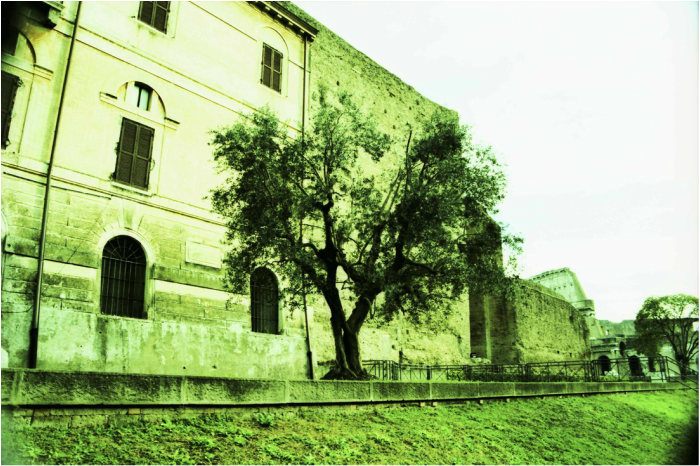

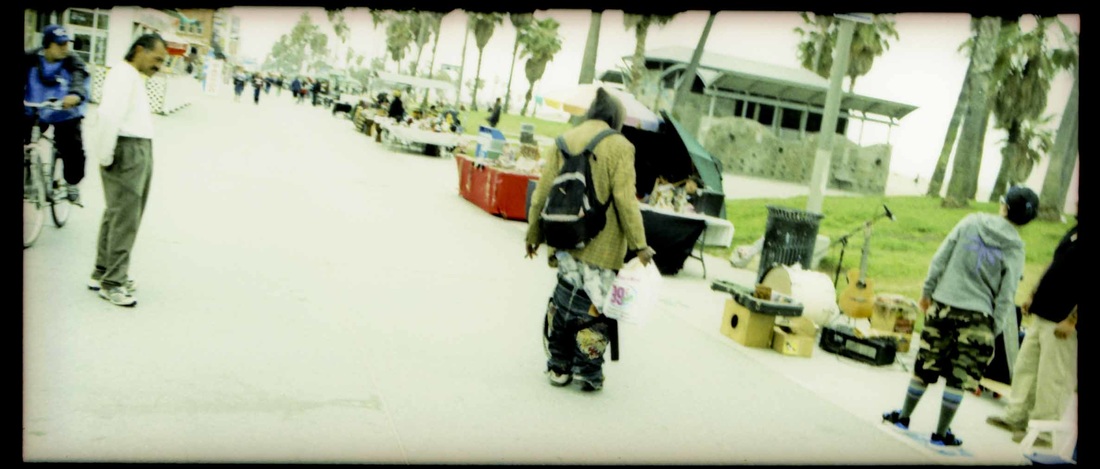
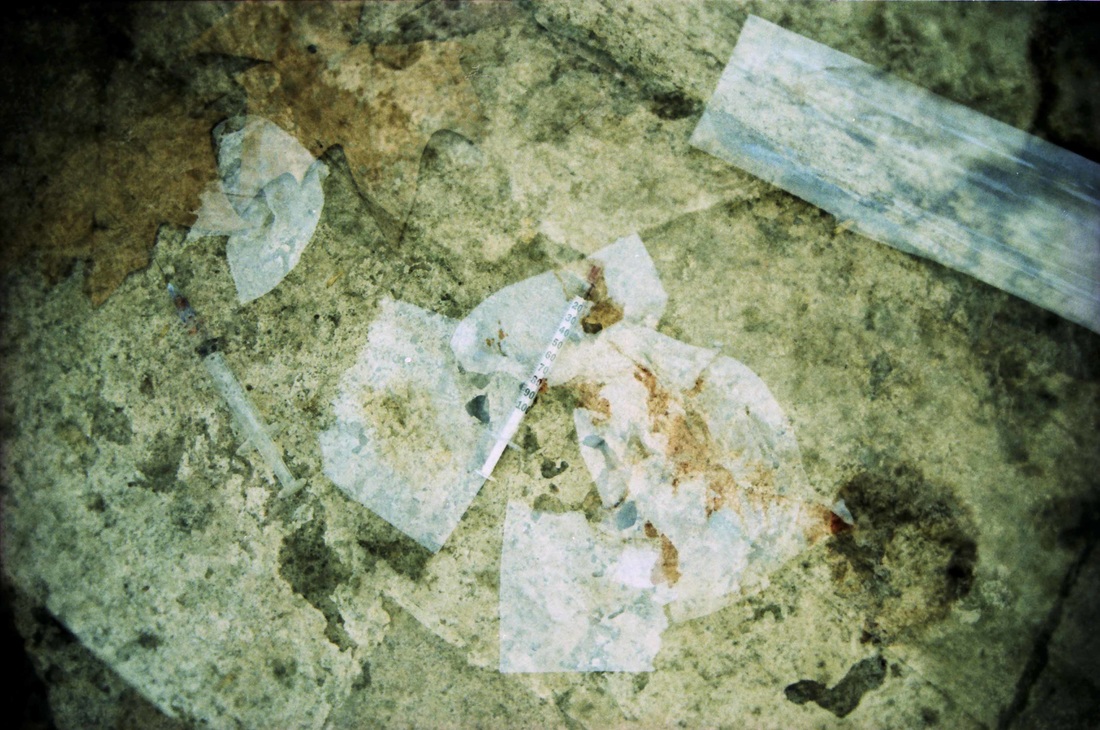
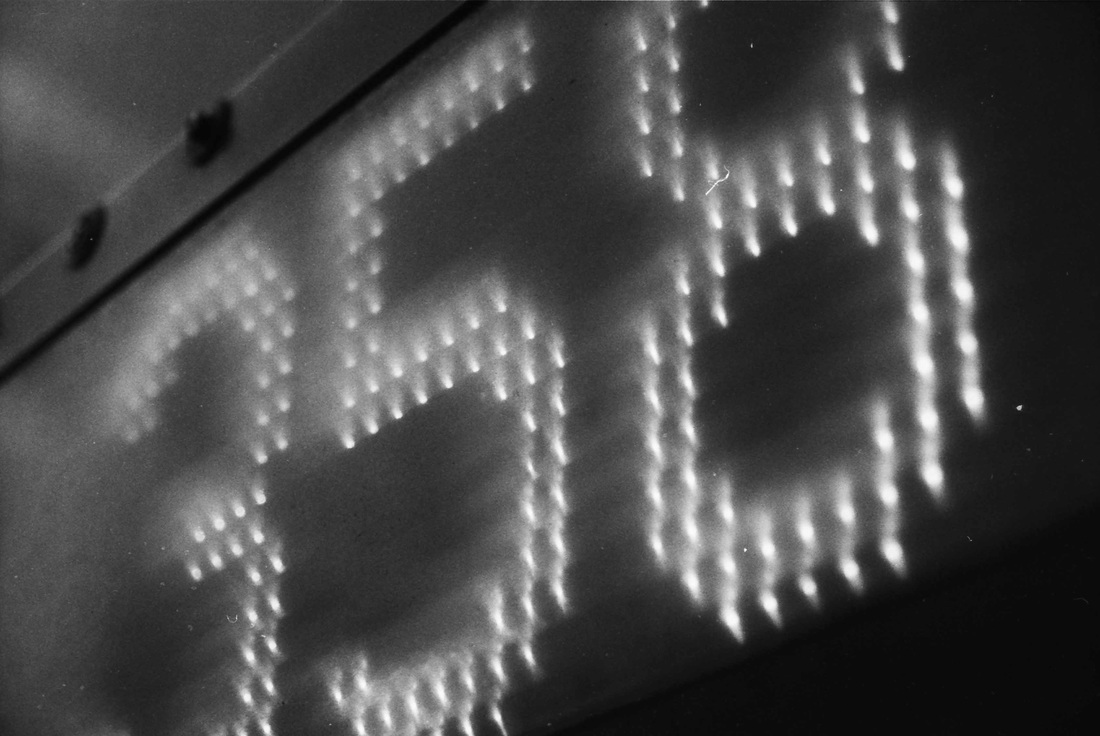

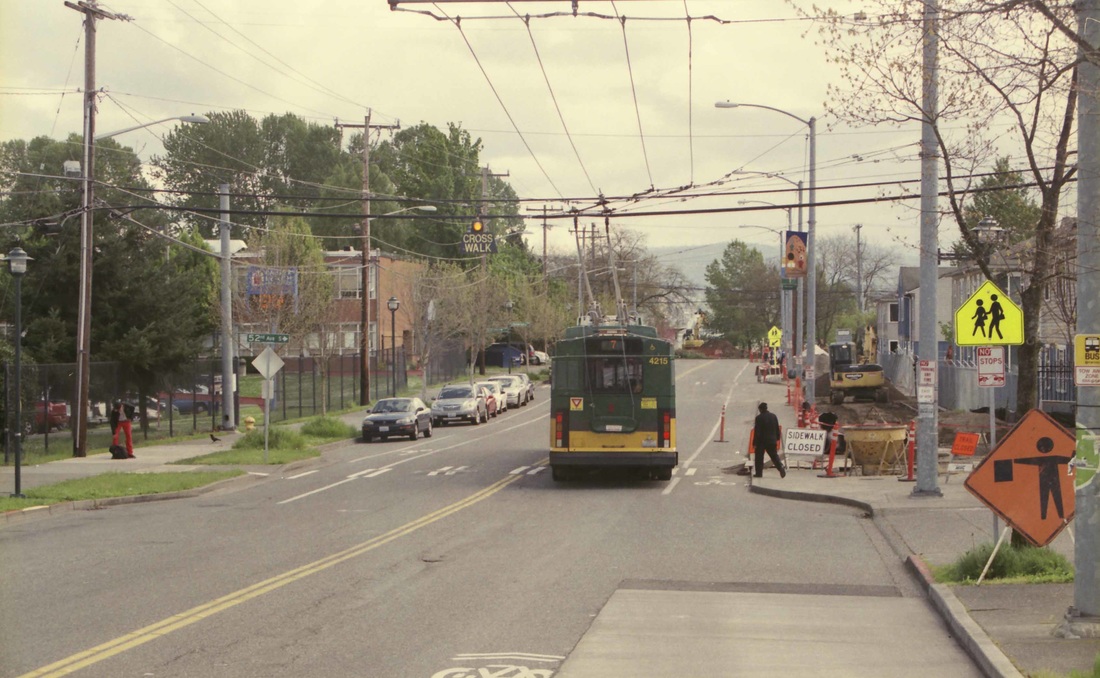
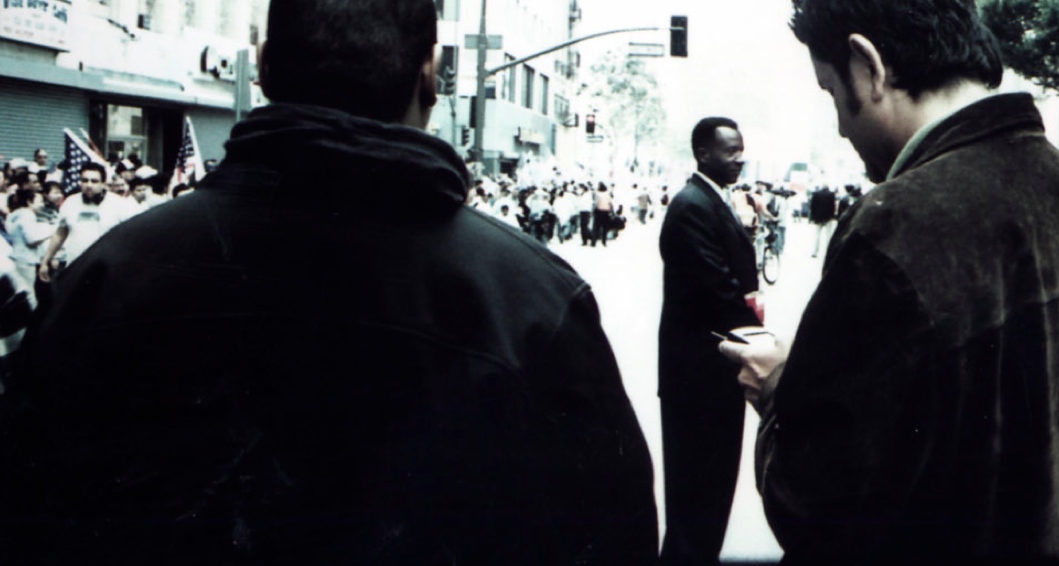
 RSS Feed
RSS Feed
